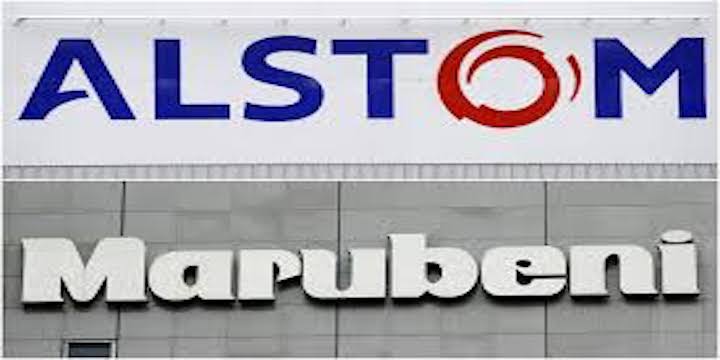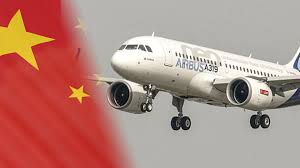Airbus FCPA Settlement: Review of Airbus Bribery Scheme (Part II of IV)

Almost every FCPA enforcement action contains important lessons learned in unraveling a bribery scheme.
Airbus has three broad divisions: (1) Commercial Division; (2) Defense & Space Division; and (3) Helicopters Division.
The bribery scheme involved China, three Chinese government entities (GE-1, GE-2, and GE-3), and three consultants: Consultant 1, an agent who received payments from Airbus during 2013 to 2015 that were intended for bribes to officials at GE-1, GE-2 and GE-3; Consultant 2, a former Airbus employee who worked as an agent for Airbus from 2007 to 2015, and reported to Airbus Executives 4 and 5. Consultant 2 introduced Airbus to Consultant 1; and Consultant 3 was an agent of Airbus and assisted Airbus with concealing payments to Consultant 1.
Airbus created an internal organization, Strategy and Marketing Organization (“SMO”). Between 2008 and 2015, SMO managed all international third-party relationships involving commercial aircraft, and had review and approval authority for all third-parties in the Defense & Space Division and Helicopters Division. SMO’s International Division managed Airbus’ international business development, strategy, and marketing activities. Third-parties were formally approved by Airbus’ Company Development and Selection Committee.

Between 2008 to 2015, Airbus operated a bribery scheme to pay foreign officials and commercial parties in order to secure additional aircraft sales contracts. Airbus engaged third parties to facilitate and disguise bribery payments paid through the seven year period. Airbus made bribery payments through business partner bank accounts and disguised payments in the form of loans that were never repaid. The business partners received payments and keep a portion as payment for services that were falsely described in contracts and invoices.
Airbus Executive 3 managed and directed a significant portion of the bribery schemes. Airbus Executive 3 maintained a detailed spreadsheet listing the actual and intended recipient of bribery payments.
Airbus executives relied on the SMO to carry out specific bribery needs and schemes. SMO International disguised and concealed the true purpose of engaging third parties to further corrupt payments by creating fake and fraudulent contracts, receiving fake and fraudulent invoices for services never performed, fake activity reports, developing fraudulent “special projects” as a mechanism to fund bribery payments, engaging in oral agreements and using non-reimbursable loans. When the scheme was exposed, Airbus disbanded the SMO.

Airbus engaged in a long-term bribery scheme in China to secure larger orders of aircraft. Airbus interacted with three separate government entities – GE-1, GE-2 and GE-3. GE-1 responsible for Chinese infrastructure include the aviation industry; GE-2 was a government agency that supervised the aviation industry; and GE-3 negotiated and entered into General Terms Agreements with aviation companies based on approval from GE-1 and specific direction from GE-2.
Between 2013 to 2015, two Airbus Executives engaged Consultant 1 to make bribery payments to Chinese officials. To facilitate the scheme, Airbus made payments to a Hong Kong account in Consultant 3’s name, and Consultant 3, in turn, paid Consultant 1 who then paid the bribes. Specific bribes were paid to two Chinese foreign officials to secure two significant aircraft contract orders.
Consultant 1 and Airbus executives communicated regularly through emails about interactions with foreign officials. In many messages, Consultant 1 referenced bribery payments and progress in negotiations for aircraft orders. Consultant 2 also reported to Airbus executives concerning communications with Consultant 1.
After extensive negotiations and communications among Airbus executives and Consultants 1 and 2, Airbus eventually retained Consultant 3 to fund a $14 million payment to Consultant 1 for bribes to Chinese officials.
In September 2014, Consultant 3 was provided funding through a fraudulent loan scheme in the amount of 7.7 million Euros, which Consultant 3 transferred to Consultant 1 for bribe payments.
Eventually, in October 2014, Airbus reached an agreement with the Chinese government to acquire 70 aircraft, an increase in the expected order by 20 additional aircraft.

Airbus also provided Chinese officials and occasionally their families to luxury travel events in Park City, Utah, and Maui, Hawaii. For example, at these events, Airbus would host a 30 minute marketing or business presentation and provide recreational activities, including scuba diving, golf, snorkeling cruises, horseback riding, ocean kayaking, surfing lessons and cocktail and dinner receptions.
Airbus and a Chinese government official agreed to create a separate fund for events and entertainment. Airbus made monetary contributions to the Fund which was used to pay for numerous events for Chinese government officials, including golf retreats and leisure events in China. The stated purpose of the Fund was to provide educational and training programs.















